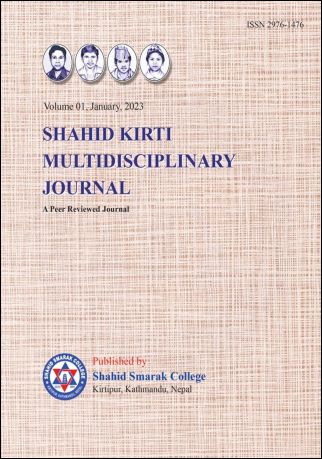Why Not the Humanities: Reclaiming Its Significance in Interdisciplinary and Holistic Education
DOI:
https://doi.org/10.3126/skmj.v1i1.60507Keywords:
Commodification, criticality, global citizenry, holistic education, humanities, interdisciplinaryAbstract
This paper analyzes why humanities is in crisis and proposes its interdisciplinary significance in holistic education. The analysis is based on a few relevant research reports about the prevalent conditions of universities and colleges and some reviews of a few important books by educationists and humanists regarding students, professors and funding in humanities. It uses the critical insights of humanist educationists, specifically envisioned by Plato, Rabindranath Tagore, Jiddu Krishna murti, John Dewey and Martha Nussbaum for their advocacy of holistic education. They conform to the power of human virtues that can change a brute animal into an empathetic human unlike a trained monkey and a mechanical mind. This paper argues that the education system remains dysfunctional if it fails to give humanizing education and produce critico-creative citizens. It raises a question why the humanities is in crisis despite its great undertaking of creating a complete human and examines what the principal causes are. Education is commodified, technologized and is concerned with producing skilled human resources. The focus is on the career prospect of education ensuring a promising future with the least regard to its humanitarian dimension. The corporate houses invest in and promote Science, Technology, Engineering and Management to cater to the choices and interests of parents and students who expect immediate returns. But the education system overlooks the crucial aspect that criticality, compassion and human values that humanities cultivates are more important skills of survival enabling the wise use of other skills than immediate returns. This study makes parents, students and other stakeholders of education aware of the importance of humanities in the overall development of students. It also helps mitigate the fragmentation and alienation caused by commodification of education




